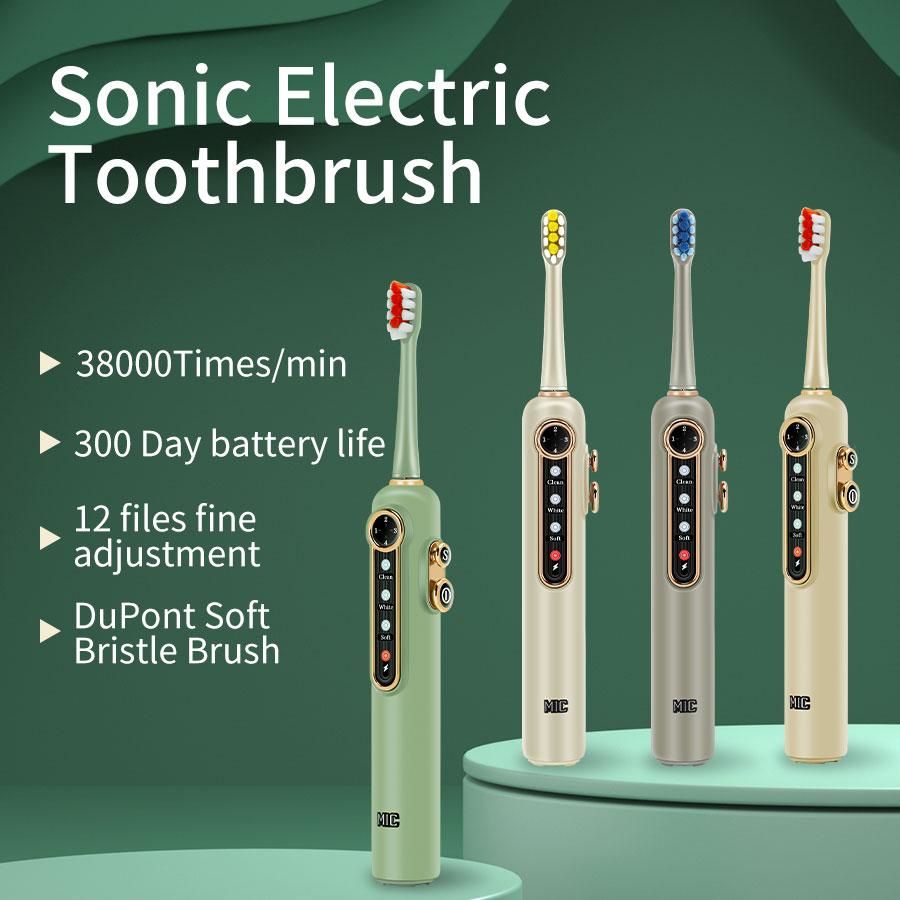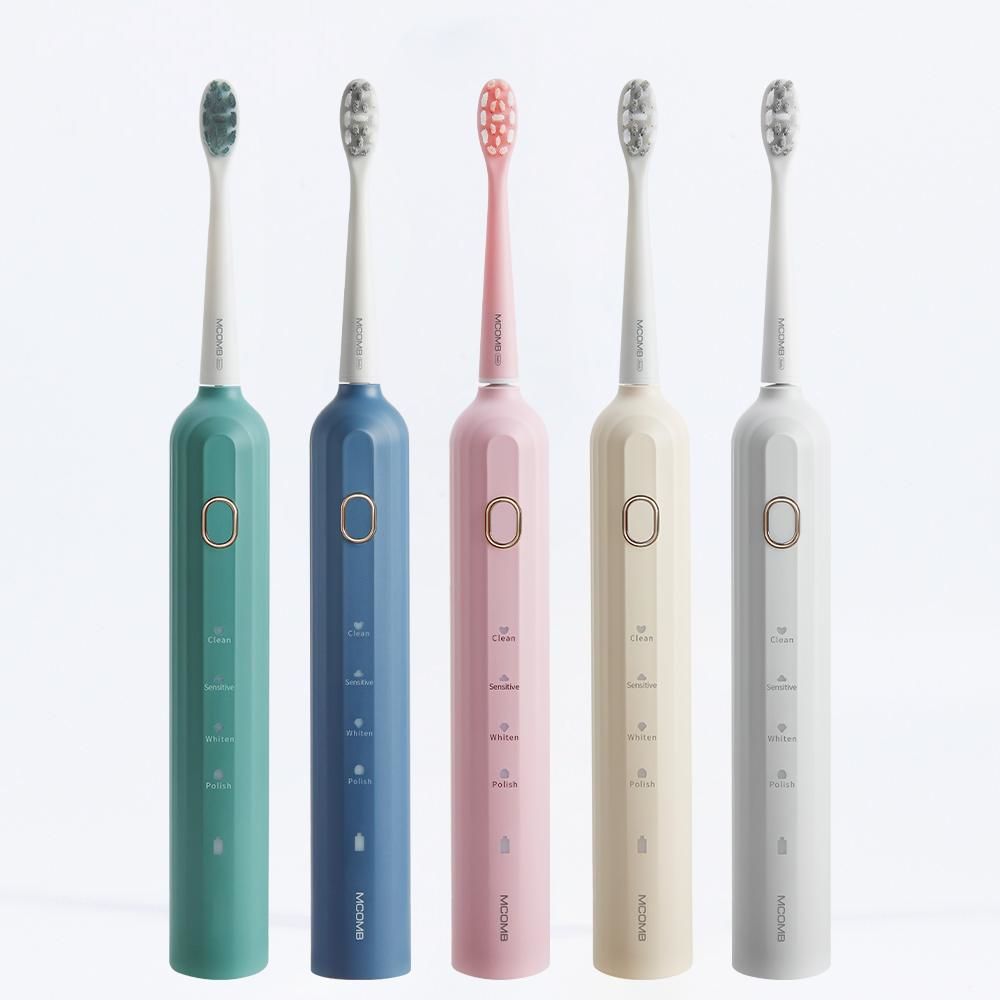Contact :
Name:Brittany Zhang
E-mail:brittanyl1028@gmail.com
Whatsapp:+0086 18598052187
Teeth can become stained over time by foods like coffee, tea, and wine, as well as from smoking or from certain medications and health conditions. Teeth also tend to darken in color as people age.
The quest for a whiter, brighter smile is so common that tooth whitening is now a multi-billion-dollar industry. Within that market is a vast range of options, from over-the-counter approaches like whitening toothpaste to professional teeth whitening treatments at the dentist. But how about the trusty toothbrush? Do electric toothbrushes deliver more power for polishing those pearly whites?
Electric toothbrushes are often better at removing stains than traditional brushes. This makes them a great tool for getting whiter teeth. That said, if additional whitening is desired or discoloration is severe, it makes sense to consult a dentist.
How Does Teeth Whitening Work?
There are two ways to brighten teeth. One is to use a mild abrasive to remove stains and the other is to use a bleaching agent, such as hydrogen peroxide or carbamide peroxide, to change the color of the tooth enamel itself. Some options, like electric toothbrushes, can be used at home while others are performed by a dentist.
Electric Toothbrushes vs. Traditional Toothbrushes
When it comes to whitening teeth, the very first strategy is to keep teeth as clean and free of plaque as possible. Daily tooth brushing and flossing are of course recommended—but are electric toothbrushes worth the hype? Studies have shown that electric and ultrasonic toothbrushes can be more effective at removing yellow-tinged plaque and reducing gum disease (gingivitis) than manual toothbrushes, for a few reasons. Whether the brush has an oscillating head or vibrating bristles, electric toothbrushes do most of the work for the user.This makes it easier to clean teeth efficiently. Since most electric toothbrushes run on timers, people tend to brush longer than with regular toothbrushes.
Whitening Teeth with Electric Toothbrushes
In addition to cleaning teeth better, electric toothbrushes can be more effective at removing stains from teeth. This makes them a good choice for whitening, especially when used with other options like whitening toothpaste. Luckily, it has been shown that budget-friendly electric and ultrasonic toothbrushes are just as effective at stain removal as more expensive products. Toothbrushes with oscillating heads that clean by rotating in a circular motion are better for whitening than those that simply vibrate.
Options for Whitening Teeth
Electric toothbrushes can be combined with additional whitening strategies, such as using whitening toothpaste or strips, or getting teeth professionally whitened. Here are some additional options.
Get regular dental cleanings. Aside from maintaining good dental health, regular cleanings can help keep teeth white and bright. During a routine cleaning the dentist can polish away superficial surface stains. This is especially helpful for stains caused by foods and drinks. A cleaning immediately makes teeth brighter and helps reduce the buildup of stains over time.
Use a whitening toothpaste. These products contain a combination of ingredients that can remove some surface stains from teeth. Whitening toothpaste is less expensive than other options, and most brands contain fluoride, which can help prevent tooth decay. While whitening toothpaste can remove some surface stains, it will not lighten the color of the tooth enamel itself.
Use whitening strips or trays. These chemical treatments work to remove stains and lighten the color of the tooth enamel. Available over the counter, these products work by placing a bleaching agent on the tooth surface for several minutes at a time. Because they are used at home, they offer a convenient way to gradually lighten teeth. Getting noticeable results usually takes several treatments. The chemicals in strips and trays are more powerful than those in whitening toothpaste and are more expensive. However,they aren’t as powerful for whitening as professional treatments.
Depending on the level of tooth discoloration, many people can get good results from these less expensive options. Severely discolored teeth may require the more potent chemical agents in professional teeth whitening treatments at the dentist.
Consider professional teeth whitening. With all these at-home options available, patients may wonder: Is it quicker to have teeth whitened by a dentist? The short answer is yes. Professional teeth whitening at the dentist usually has more dramatic results than other methods, and results will show up much faster.
For these reasons, teeth whitening has become the most sought-after cosmetic patient request. Though this is a more expensive option, there are some advantages to choosing professional treatment. Dentists use chemical solutions that are often twice as powerful as those found in over-the-counter products. These deliver more noticeable results in a shorter time and are more effective for severe cases.
Safety is another important consideration. Chemicals that bleach teeth can be harsh to the teeth and gums. If used incorrectly, they can cause tooth sensitivity or irritation. A dentist can assess each patient’s needs and ensure the safety of the treatment from start to finish.
Media Contact
Company Name: Shenzhen Jidimei Technology Co., Ltd
Email: Send Email
Country: China
Website: https://www.jdmmcomb.com/


